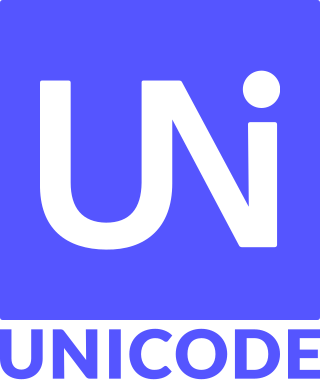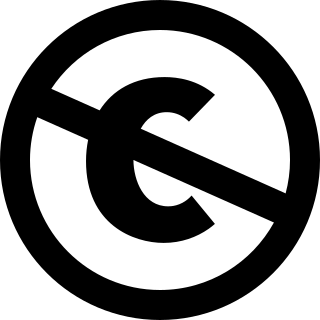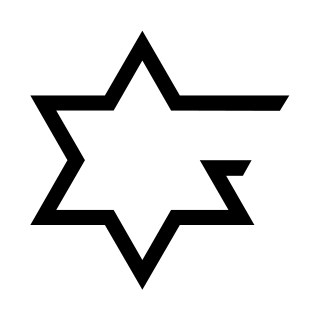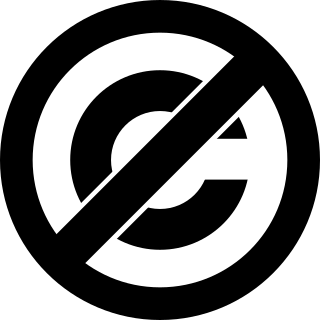
Open-source licenses are software licenses that allow content to be used, modified, and shared. They facilitate free and open-source software (FOSS) development. Intellectual property (IP) laws restrict the modification and sharing of creative works. Free and open-source licenses use these existing legal structures for an inverse purpose. They grant the recipient the rights to use the software, examine the source code, modify it, and distribute the modifications. These criteria are outlined in the Open Source Definition.
Creative Commons (CC) is an American non-profit organization and international network devoted to educational access and expanding the range of creative works available for others to build upon legally and to share. The organization has released several copyright licenses, known as Creative Commons licenses, free of charge to the public. These licenses allow authors of creative works to communicate which rights they reserve and which rights they waive for the benefit of recipients or other creators. An easy-to-understand one-page explanation of rights, with associated visual symbols, explains the specifics of each Creative Commons license. Content owners still maintain their copyright, but Creative Commons licenses give standard releases that replace the individual negotiations for specific rights between copyright owner (licensor) and licensee, that are necessary under an "all rights reserved" copyright management.

The Unicode Consortium is a 501(c)(3) non-profit organization incorporated and based in Mountain View, California. Its primary purpose is to maintain and publish the Unicode Standard which was developed with the intention of replacing existing character encoding schemes which are limited in size and scope, and are incompatible with multilingual environments.

A Creative Commons (CC) license is one of several public copyright licenses that enable the free distribution of an otherwise copyrighted "work". A CC license is used when an author wants to give other people the right to share, use, and build upon a work that the author has created. CC provides an author flexibility and protects the people who use or redistribute an author's work from concerns of copyright infringement as long as they abide by the conditions that are specified in the license by which the author distributes the work.
An anti-copyright notice is a specific statement that is added to a work in order to encourage wide distribution. Such notices are legally required to host such specific media; under the Berne Convention in international copyright law, works are protected even if no copyright statement is attached to them. However, "anti-copyright" statements typically do not take the form of either sophisticated public copyright licenses or a simple dedication to the public domain; instead, they usually just encourage wide distribution. Depending on jurisdiction, it is possible to denounce all claims to copyright in a work including moral rights in a written disclaimer.
The at sign, @, is an accounting and invoice abbreviation meaning "at a rate of", now seen more widely in email addresses and social media platform handles. It is normally read aloud as "at" and is also commonly called the at symbol, commercial at, or address sign.

Flickr is an image hosting and video hosting service, as well as an online community, founded in Canada and headquartered in the United States. It was created by Ludicorp in 2004 and was previously a common way for amateur and professional photographers to host high-resolution photos. It has changed ownership several times and has been owned by SmugMug since April 20, 2018.

The free-culture movement is a social movement that promotes the freedom to distribute and modify the creative works of others in the form of free content or open content without compensation to, or the consent of, the work's original creators, by using the Internet and other forms of media.
The copyright symbol, or copyright sign, ©, is the symbol used in copyright notices for works other than sound recordings. The use of the symbol is described by the Universal Copyright Convention. The symbol is widely recognized but, under the Berne Convention, is no longer required in most nations to assert a new copyright.

Public-domain software is software that has been placed in the public domain, in other words, software for which there is absolutely no ownership such as copyright, trademark, or patent. Software in the public domain can be modified, distributed, or sold even without any attribution by anyone; this is unlike the common case of software under exclusive copyright, where licenses grant limited usage rights.

The WTFPL is a permissive free software license. As a public domain like license, the WTFPL is essentially the same as dedication to the public domain. It allows redistribution and modification of the work under any terms. The title is an abbreviation of "Do What The Fuck You Want To Public License".

Public-domain-equivalent license are licenses that grant public-domain-like rights and/or act as waivers. They are used to make copyrighted works usable by anyone without conditions, while avoiding the complexities of attribution or license compatibility that occur with other licenses.

Open-source Judaism is a name given to initiatives within the Jewish community employing open content and open-source licensing strategies for collaboratively creating and sharing works about or inspired by Judaism for faster, instantaneous communication. Open-source efforts in Judaism utilize licensing strategies by which contemporary products of Jewish culture under copyright may be adopted, adapted, and redistributed with credit and attribution accorded to the creators of these works. Often collaborative, these efforts are comparable to those of other open-source religious initiatives inspired by the free culture movement to openly share and broadly disseminate seminal texts and techniques under the aegis of copyright law. Combined, these initiatives describe an open-source movement in Judaism that values correct attribution of sources, creative sharing in an intellectual commons, adaptable future-proof technologies, open technological standards, open access to primary and secondary sources and their translations, and personal autonomy in the study and craft of works of Torah.

Free content, libre content, libre information, or free information is any kind of functional work, work of art, or other creative content that meets the definition of a free cultural work, meaning "works or expressions which can be freely studied, applied, copied and/or modified, by anyone, for any purpose."

Copyleft is the legal technique of granting certain freedoms over copies of copyrighted works with the requirement that the same rights be preserved in derivative works. In this sense, freedoms refers to the use of the work for any purpose, and the ability to modify, copy, share, and redistribute the work, with or without a fee. Licenses which implement copyleft can be used to maintain copyright conditions for works ranging from computer software, to documents, art, scientific discoveries and even certain patents.

The public domain (PD) consists of all the creative work to which no exclusive intellectual property rights apply. Those rights may have expired, been forfeited, expressly waived, or may be inapplicable. Because no one holds the exclusive rights, anyone can legally use or reference those works without permission.
A free license or open license is a license which allows others to reuse another creator’s work as they wish. Without a special license, these uses are normally prohibited by copyright, patent or commercial license. Most free licenses are worldwide, royalty-free, non-exclusive, and perpetual. Free licenses are often the basis of crowdsourcing and crowdfunding projects.
A public license or public copyright licenses is a license by which a copyright holder as licensor can grant additional copyright permissions to any and all persons in the general public as licensees. By applying a public license to a work, provided that the licensees obey the terms and conditions of the license, copyright holders give permission for others to copy or change their work in ways that would otherwise infringe copyright law.

Unsplash is a website dedicated to proprietary stock photography. Since 2021, it has been owned by Getty Images. The website claims over 330,000 contributing photographers and generates more than 13 billion photo impressions per month on their growing library of over 5 million photos. Unsplash has been cited as one of the world's leading photography websites by Forbes, Design Hub, CNET, Medium and The Next Web.

The Unlicense is a public domain equivalent license for software which provides a public domain waiver with a fall-back public-domain-like license, similar to the CC Zero for cultural works. It includes language used in earlier software projects and has a focus on an anti-copyright message.














